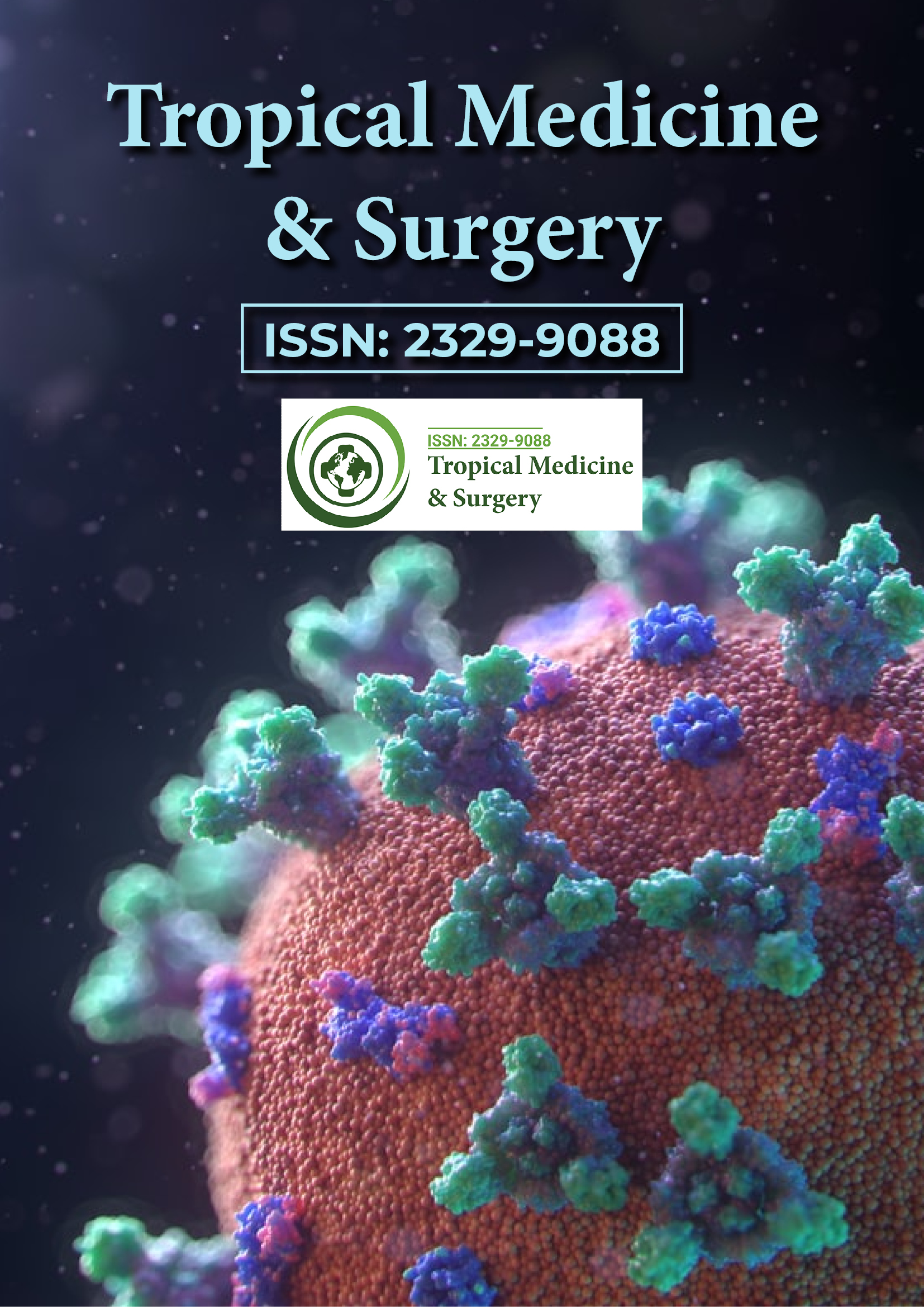Indexed In
- Open J Gate
- Academic Keys
- RefSeek
- Hamdard University
- EBSCO A-Z
- OCLC- WorldCat
- Publons
- Euro Pub
- Google Scholar
Useful Links
Share This Page
Journal Flyer

Open Access Journals
- Agri and Aquaculture
- Biochemistry
- Bioinformatics & Systems Biology
- Business & Management
- Chemistry
- Clinical Sciences
- Engineering
- Food & Nutrition
- General Science
- Genetics & Molecular Biology
- Immunology & Microbiology
- Medical Sciences
- Neuroscience & Psychology
- Nursing & Health Care
- Pharmaceutical Sciences
Commentary - (2023) Volume 11, Issue 6
Immunomodulatory Effects of Isotretinoin in Chagas Disease
Raissa Hoyos*Received: 02-Nov-2023, Manuscript No. TPMS-23-24214; Editor assigned: 06-Nov-2023, Pre QC No. TPMS-23-24214 (PQ); Reviewed: 20-Nov-2023, QC No. TPMS-23-24214; Revised: 27-Nov-2023, Manuscript No. TPMS-23-24214 (R); Published: 04-Dec-2023, DOI: 10.35248/2329-9088.23.11.333
Description
Chagas disease, caused by the protozoan parasite Trypanosoma cruzi, remains a significant public health concern in many parts of Latin America. Current treatment options for Chagas disease are limited, with potential side effects and variable efficacy. The search for alternative and repurposed drugs is essential for addressing the challenges associated with this neglected tropical disease. The effectiveness of repurposed isotretinoin, a medication commonly used for severe acne, has been explored in a mouse model of Chagas disease.
Chagas disease, also known as American trypanosomiasis, is transmitted to humans primarily through the bite of infected triatomine bugs but can also occur through congenital transmission, blood transfusions, and organ transplants. The chronic phase of the disease can lead to severe cardiac and gastrointestinal complications, and current treatment options, such as benznidazole and nifurtimox, are associated with limitations including prolonged treatment duration, potential side effects, and variable efficacy, particularly in the chronic phase. Isotretinoin, a synthetic derivative of vitamin A, is a well- known treatment for severe acne. Its ability to regulate cell proliferation and differentiation, modulate immune responses, and exhibit anti-inflammatory properties has sparked interest in exploring its potential as a repurposed drug for various diseases, including infectious diseases. The rationale behind repurposing isotretinoin lies in its immunomodulatory effects, which could potentially impact the host-parasite interaction and contribute to the control of T. cruzi infection.
Isotretinoin demonstrated immunomodulatory effects, influencing the host's immune response to T. cruzi. The drug appeared to enhance specific immune pathways associated with the control of parasitic infections. This modulation of the immune response could contribute to the observed reduction in parasite load and aid in the host's ability to combat the infection. Chagas disease often leads to severe cardiac complications in the chronic phase, and the study assessed the impact of isotretinoin on cardiac health in infected mice. The treated mice exhibited reduced cardiac inflammation and fibrosis compared to the untreated group. This suggests a potential protective effect of isotretinoin on the heart, which is a critical organ affected by chronic Chagas disease. Mice treated with isotretinoin showed improved survival rates compared to the untreated group. This finding is particularly as it indicates not only a reduction in parasite burden and cardiac damage but also an overall positive impact on the health and survival of the infected animals.
Mechanisms of action
The exact mechanisms through which isotretinoin exerts its anti
T. cruzi effects are still under investigation. However, several potential pathways have been proposed based on the drug's known pharmacological properties. Isotretinoin may directly inhibit the growth and replication of T. cruzi within host cells. The drug's impact on parasite metabolism and cellular processes could interfere with the ability of the parasite to establish a persistent infection. Isotretinoin's immunomodulatory effects may enhance the host's immune response against T. cruzi. This could involve the activation of specific immune cells, cytokine production, or the modulation of inflammatory pathways that contribute to parasite control. The observed reduction in cardiac inflammation and fibrosis may be attributed to isotretinoin's ability to modulate inflammatory responses and protect against tissue damage. The drug's impact on the heart could contribute to improved overall health and survival in Chagas disease. The findings from the mouse model study suggest that repurposed isotretinoin holds promise as a potential treatment for Chagas disease. While further research is needed to validate these results and understand the underlying mechanisms in more detail, the study opens avenues for exploring isotretinoin as part of a multi- drug approach or in combination with existing treatments for Chagas disease.
Optimal treatment regimens
Determining the optimal dosage, treatment duration, and potential combination therapies with isotretinoin will be essential for maximizing its therapeutic benefits while minimizing side effects.
Mechanistic understanding: The specific mechanisms through which isotretinoin acts against T. cruzi and influences the host's immune response will provide valuable insights for refining treatment strategies.
Patient populations: Chagas disease presents as a complex and heterogeneous condition, and the effectiveness of isotretinoin may vary among different patient populations. The treatment approaches based on the stage of the disease and individual patient characteristics.
The repurposing of isotretinoin for Chagas disease, as demonstrated in a mouse model, presents a promising avenue for addressing the limitations of current treatment options. The observed reduction in parasite load, immunomodulatory effects, cardiac protection, and improved survival rates underscore the potential of isotretinoin as a novel therapeutic approach. While challenges and questions remain, the findings from this study provide a strong foundation for further exploration and clinical development. The complexities of Chagas disease and explore innovative treatment strategies, the repurposing of isotretinoin stands for more effective and accessible therapies for those affected by this neglected tropical disease.
Citation: Hoyos R (2023) Immunomodulatory Effects of Isotretinoin in Chagas Disease. Trop Med Surg. 11:333.
Copyright: © 2023 Hoyos R. This is an open access article distributed under the terms of the Creative Commons Attribution License, which permits unrestricted use, distribution, and reproduction in any medium, provided the original author and source are credited.
